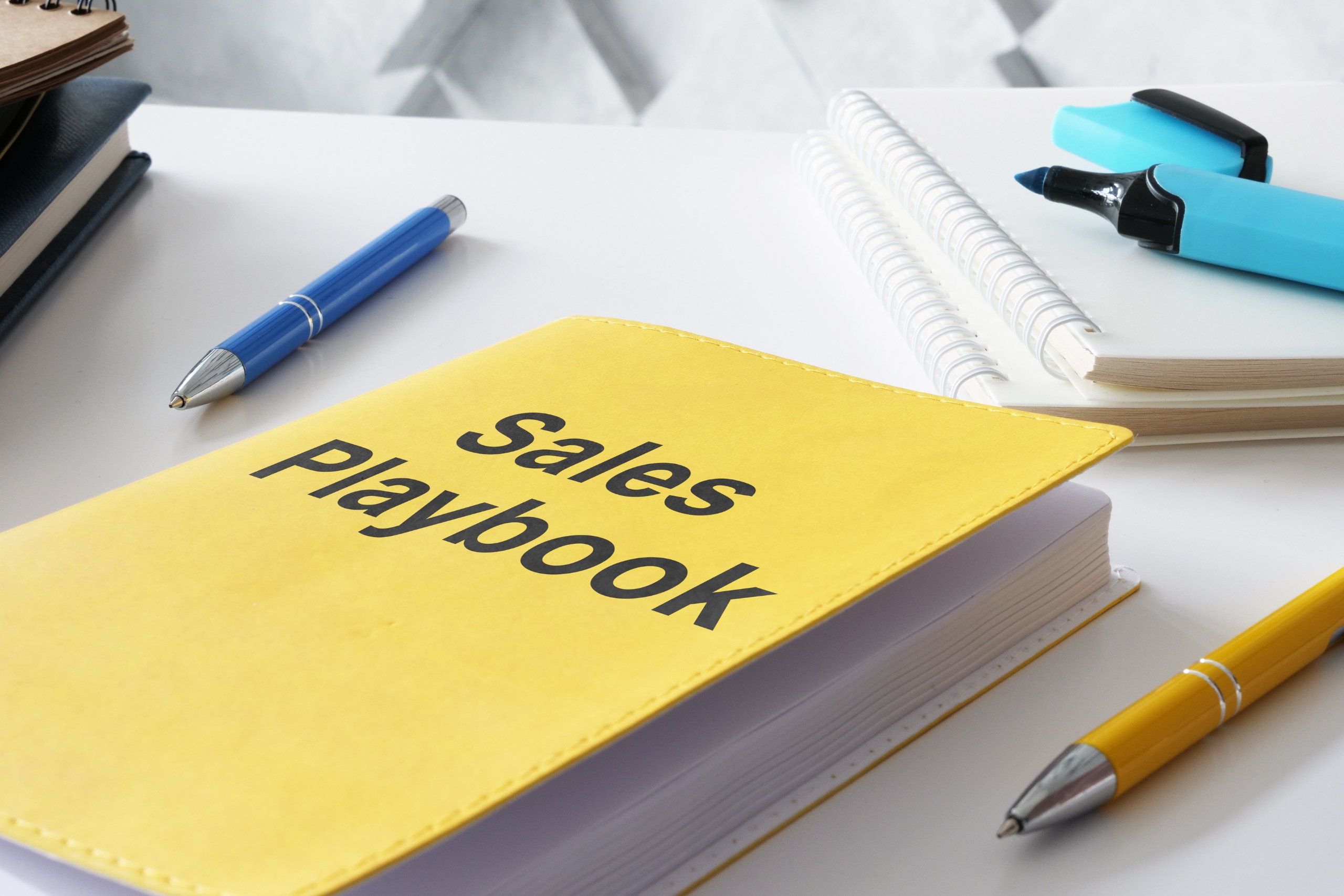Introduction
Each company has a sales process, but not all of them have a sales plan. A sales script is more than just a list of strategies; it’s a planned way to take leads from the first contact to a finished deal. The best agencies use their script as a guide to show their teams every step, reaction, and approach they should use.
But in the market we live in now, where things change quickly, a written plan is not enough. Today’s buyers expect everything to be quick, personalized, and the same at all times. Agencies that still use sticky notes, files, or random follow-ups will always be behind. It’s because of this that CRM sales playbook automation has changed the game. When agencies combine the structure of a plan with the power of automation, they make a system that works in the background and engages leads right away, keeps in touch with them regularly, and moves them toward conversion all the time.
We’ll talk about why automation is the future of sales playbooks, how agencies can make it work well, and the real-world benefits of putting planned strategies into automatic processes in this piece.
Why Agencies Need a Sales Playbook
A sales plan brings order to the confusion of managing leads. The plan makes sure that everyone on the team follows the same steps, so no salesperson has to do things differently. It shows the best ways to do things, what to say, how to deal with objections, and what to do step-by-step at each stage of the funnel.
Prospects look for trends, so this stability is important. People believe a skilled, well-thought-out process that makes them feel like they are in good hands. If sales teams don’t have a plan, they might look disorganized or irregular, which hurts their trustworthiness.
But even the best playbooks have a problem: they can’t always be used. Salespeople have lots to do. Using a hand-written list is often forgotten when there are a lot of leads or when several projects are going at the same time. This is where machines come in.
The Shift Toward CRM Sales Playbook Automation
With automation, agencies can take their planned playbook and turn it into a machine that runs itself. The CRM then acts as the playbook’s executor, doing tasks automatically and without needing to be checked by hand every step of the way.
For instance, when a lead fills out a form, the CRM gives them a thank-you email, puts them in a certain stage of the queue, and sets up notes to follow up. When a buyer shows signs of wanting to buy, like going to a price page, the CRM starts a nurture process or lets the sales team know.
In this case, the CRM sales playbook automation is being used. Instead of counting on memory or hard work, the machine always follows the plan. There is no need for the sales team to do the same things over and over again because each lead gets the right word at the right time.
The Psychology of Consistency and Speed
What’s the big deal about automation? The answer is in the study of mind. Prospects like stability because it shows that you can be trusted. They also value speed—answers that come right away show that you are skilled and knowledgeable.
Prospects go through both when a plan is automatic. They get messages at the right time that feel personal and important, and the agency treats all leads in the same steady, professional way. The sales process moves faster with this combo.
Manual completion, on the other hand, often leads to delays and mistakes. One possibility might get a follow-up right away, while another might have to wait days. These holes make people wonder and let rivals in. Automating the strategy takes care of these weak places, which helps the entire process move more easily.
An Automated Playbook in Action: A Real-Life Example
Think of a service that used to contact individuals to check on them. The salespeople had a strategy written down, but it was hard for them to follow it every time. Some leads had results immediately quickly, while others had to wait. Because of this, the number of closures decreased down.
The organization modified how it handled things after implementing CRM sales playbook automation. Before a new lead was nurtured, they got a brief thank-you email, a tailored text message, and were prompted to sign up for a nurturing sequence. Automatic notes about appointments were sent out, and the sales team was notified when leads interacted with important information.
The number of conversions and engagements went up a lot in only three months. The plan did not change; what did change was how it was carried out. Everything always went according to plan thanks to automation.
Key Benefits of Automating a Sales Playbook
When government agencies use technology, they get more than just more work done faster:
1. Faster Response Times
People notice leads immediately away, which keeps them engaged while competitors fall behind.
2. Improved Consistency
Every candidate has the same professional background, which makes the agency seem better.
3. Scalability
The technology takes care of more leads so the sales staff doesn’t have to work too hard.
4. Better Data Tracking
The CRM keeps track of every interaction, which makes it easier to see how effectively strategies are working and make modifications.
5. Higher Close Rates
Agencies often complete more transactions by getting people involved and making sure they don’t miss out on opportunities.
These benefits are proof that technology is now a necessary. It’s what competitive sales tactics are built on.
How to Implement CRM Sales Playbook Automation
It doesn’t have to be hard to set up software. Agencies can begin small and grow as they feel more comfortable.
The first step is to make the plan very clear. To do this, you need to make a plan of the buyer journey, list the key connections, and decide what messages or actions should happen at each stage. The next step is to set up processes in the CRM that will automatically carry out these tasks once they have been outlined.
For instance, a new lead could lead to an email and SMS right away, and interacting with a certain resource could move the prospect to a different stage of the process. Automation should be able to handle different situations while still following the same steps.
Lastly, agencies should keep a close eye on the results. Automation shouldn’t stay the same; it should change based on data that shows which messages connect best and which processes lead to the most sales. The automatic plan gets smarter and better at what it does over time.
Why Automation Creates a Competitive Edge
Speed and uniformity are very important in fields where prospects often call more than one agency. The firm that answers first and talks to the client in a professional way is more likely to get the job. This benefit lasts forever thanks to automation.
Agencies may make sure they don’t miss any leads or opportunities by making sure the strategy works flawlessly. They are also incredibly competent, which sets them apart from competitors who still utilize old-fashioned approaches.
This advantage over the competitors becomes bigger with time. More leads become customers, relationships with customers develop stronger, and sales keep going up. Companies who use CRM sales playbook automation today will have a big edge over their competitors in the future, but those that wait too long will have a hard time keeping up.

Conclusion
Agencies have long used the sales plan as a useful tool, but in today’s fast-paced, digital-first world, it’s not enough to accomplish everything by hand. At every stage, prospects want quick replies, ongoing touch, and expert involvement.
Companies can convert their ideas into systems that always perform correctly with CRM sales playbook automation. Leads are spotted straight away, taken care of on a regular basis, and forwarded through the process fast. Sales teams don’t have to perform the same things over and over again. Instead, they can concentrate on what they do best: creating relationships and closing transactions.
If you don’t do anything, you’ll miss out on possibilities, spend money on advertising, and lose your customers’ confidence. It’s evident that automation works: it speeds up responses, increases conversion rates, and makes the system more flexible to meet additional demands. This makes businesses the best in their sector.
The businesses of the future will be the ones who utilize their strategy as a way to expand, not simply as a guide. They create sales systems that always complete transactions by making sure that psychology, strategy, and technology all work together.

